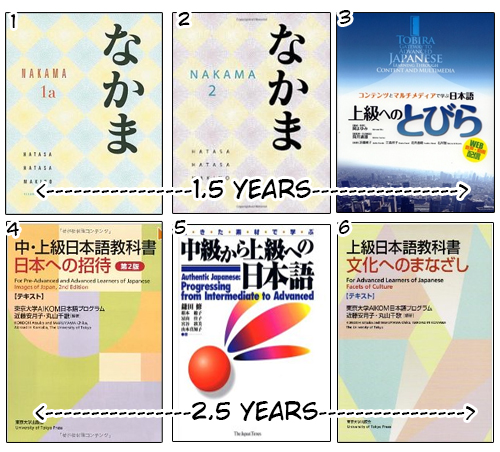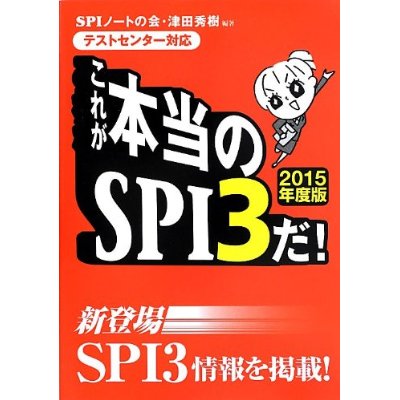When Language Classes Aren’t Challenging Enough
In my previous post I praised my university’s Chinese 101 class, which was both challenging and interesting enough to make me want to study Chinese in the future. I now want to move on to Japanese, which I have been studying now for four and a half years since starting in college. My general thoughts on Japanese study in college are as follows:
The 101/102 level of Japanese, like Chinese, was great. Things were moving fast, I felt challenged everyday, and I was excited to learn. The second year classes were similar, and I struggled a bit in the beginning while trying to keep up (I did two semesters of Japanese in 2 months via an “intensive Japanese” summer program). By my third and fourth years into studying Japanese, however, I started to like Japanese class less and less. Having gotten the basics down, there was less pressure to memorize tons of words or grammar points. I would internally groan every time I had to listen to one of my classmates struggle to discuss something relatively difficult or abstract in class.

All of the textbooks I used in college, taking 1.5 years to go through the first three, and 2.5 years for the following three. Looking back, being intermediate level (books 3~5) is the most frustrating.
1. Nakama 1
2. Nakama 2
3. Tobira
4. 日本への招待
5. 中級から上級への日本語
6. 文化へのまなざし
I didn’t feel challenged in class, and as a result I began to feel that an hour and a half in class was less helpful than an hour and a half of study on my own. In a good class, obviously, this should not happen; if lecture or class is less beneficial or interesting than self-study, then going to class has no purpose.
At this point some people draw the conclusion that classes are only useful up to a certain point, and self-studying and immersion is the only way to go. I agree that both of those things are useful (if not necessary in order to seriously improve), but I don’t want to give up on classes just yet. Surely there must be a way to make an advanced Japanese (or any advanced language class) useful and relevant. I’m nowhere *close* to knowing everything in Japanese, and so if I have the chance, aren’t there things I could still learn in a classroom environment? And if so, what kind of environment would be necessary?
Why I like Job Searching in Japan/at Japanese companies
Actually, the title is wrong. I hate job searching in Japan. In fact, I hate job searching entirely, regardless of country. It’s a soul-sucking, energy-draining, ego-destroying waste of time. But for the language learner doing job searching in their non-native language, it’s perhaps also the biggest motivator to study a language more than anything else. When you’re competing against native speakers as a non-native speaker yourself, it’s essentially a language test ramped up to eleven. You don’t know how terrible you are at a language until you’re being tested as if you were a native-speaker.
And call me masochistic, but I love it.
Last year I attended the Boston Career Forum, where I interviewed for a position at BCG, an international business strategy consulting firm. The interviews I had were completely in Japanese, and not once was my Japanese praised, nor was I told how 上手 (skilled) I was at speaking. It felt great, like I was being treated as an equal. After all, fluent Japanese was excepted for the position, and a company has no time to help you with your ego. If you can’t communicate, then say goodbye to any future interviews. While you can also talk to a Japanese friend in Japanese, it’s generally a low stress situation compared to an interview. With a friend you get the benefit of the doubt both because you both already know each other, and because you’re a non-native speaker. In an interview, this only works against you.
After the career forum I was invited by BCG to partake in a three-day long event in December called a “Winter Job”, which is used at BCG’s Tokyo office in place of final round interviews. When I arrived in Tokyo, I was the only non-Asian person (there was one Chinese student as well, but everyone else was Japanese) out of about 25 or so students at the Winter Job, most of whom were Todai/Kyodai/Keio level undergraduate and graduate students. All communication before and after the event took place in Japanese, with the three days at the BCG office naturally spent entirely in Japanese as well. I wish I could say I became this badass, completely bilingual speaker overnight for the event, but I did not; over the three days I struggled quite a lot. Keeping up—let alone competing—with everyone else was hard, and I pushed myself to the limits of my Japanese ability.
So what if a class could recreate that same environment?
Being Challenged in a Language
Finding materials to challenge myself with in Japanese is not hard. If I pick up a Japanese book and try to read it, I’ll be challenged. A recent analysis over on Reddit finds that a good 4-5000 kanji may be necessary to fluently read relatively difficult Japanese literature. If I want to challenge myself in listening or speaking, I could listen to or try to recite NHK news podcasts. If I try to read a couple of articles from Bloomberg Japan, I’ll run into an unknown word before long.
Simply put, there are plenty of Japanese challenges out there for the advanced learner. If anything, being at an “advanced” level makes it easier to find material because basically anything a native speaker would look at becomes fair game. At the same time, however, this proves to be challenging to adapt to the classroom environment. Choose something too difficult and learning slows down. As mentioned in a Language Learning & Technology journal article titled The Development of Advanced Learner Oral Proficiency Using Ipads, the author professor Lys cites that
…exposure [according to linguist Stephen Krashen] to the target language is crucial and that the amount and quality of comprehensible input learners receive—defined as i+1—determines how fast they will learn.
Going right after native materials from the start might be something we want to do, but the reality is that we need comprehensible input as well. But what I found in my advanced Japanese classes was that the input was dumbed down too far. I was understanding everything. Now that sounds fine, of course, but in my Japanese 101/102 classes, that wasn’t the case. If I didn’t study the night before I would be lost in class. After all, starting from zero meant I had no background knowledge of the language to fall back on.
In my advanced classes, there were occasionally words I did not know, but nothing that required advanced studying in order to follow along. And if someone in class didn’t understand a word, the teacher would explain it throughly in class. Again, while that might seem fine at first glance, in 101/102 you were expected to have studied prior to the class because there was so much material being crammed into so little time, limiting any time for explanations. In short, the leisurely pace in the advanced class—while it allowed for deeper discussion of certain tricky words or grammar points—did little to stimulate my interest or get me really excited about facing another challenging class. If I want to look up new words or slowly go through a reading, I can do that by myself. The chance to be challenged to speak quickly, accurately, and sophisticatedly on a difficult subject is something that is hard to recreate without a teacher to be your parter.
Consider this next quote from the Professor Lys’ article:
In a study assessing language gain in Spanish speaking students spending a semester abroad, only 12 of the 22 students were able to improve their proficiency by one level (from Intermediate Low to Intermediate Mid), even though they had reported that they had used Spanish outside of class for more than forty-five hours per week (Segalowitz & Freed, 2004, as cited in Tschirner, 2007, p. 111). Students apparently blamed the repetitive and predictable nature of many exchanges with their host family.
As an intermediate or advanced learner, it’s too easy to cheat using your basic language knowledge. If you get stuck not knowing a certain word, you can talk your way around it and convey the meaning you want. This technique is called circumlocution, and it’s not a bad strategy for the beginning learner with limited vocabulary, but as the following article points out, it can become a bad habit where advanced learners “fail to push themselves to try to remember a particular word or phrase.” The Spanish students in the above example likely fell victim to the same habit: they didn’t push themselves out of their comfort zone to use more difficult vocabulary or phrasing.
The Advanced Classroom should be like a Job Interview
In a video featuring Khatzumoto of AJATT fame, Khatz points out at one point that Japanese learners (post-Japan’s 1990 bubble) are often studying Japanese out of their love of anime and other cultural interests, rather than for any economic reason. Unsurprisingly, my advanced Japanese classes have often revolved around Japanese anime and dramas, simply because most of the learners enjoy those kinds of materials. That’s all well and good—I am not suggesting that we use more dry materials in an attempt to be “serious”—but as a result the atmosphere in the class tends to be very low-stress. “Let’s all discuss this episode” or “What happened to the character in this scene” tend to be the usual discussion points, repeated ad nauseam. And when we do talk about a recent news article in class, it’s basically a “free discussion” time, with students giving their best shot at sounding intelligent. The teacher does not interfere.
This might just be me disagreeing with a certain type of teaching methodology, but I think this style of classroom is setting intermediate and advanced learners up for failure. The teacher needs to be pushing students to speak accurately by making the class a little more stressful. We don’t want students to freeze up and fail completely, but allowing them to struggle freely by themselves out loud for five minutes as they attempt to produce intelligible output is not acceptable in an advanced level classroom.
For example, a roll-playing activity could involve being an interviewee for a large bank, and therefore the role would require memorizing how to use a large number of economic-related vocabulary. If the student is not particularly interested in economics, they could be asked to roll-play describing an abstract concept related to psychology in front of a professor, or be asked to describe a photo or movie in great detail in English, and then be asked to repeat the same description—with the same level of detail and vocabulary—in Japanese. See the following “English Lesson” video from a TV variety show:
The video is comedy, but repeating what you have just said in your native language in a language you are studying (at the same level of vocabulary and fluency) is difficult.
With these examples I am trying to think of ways students could be placed under more stress. I want situations where they would be forced to memorize a great deal more of the language than they already know. With a teacher there to correct mistakes and put pressure on students to be accurate and fast, the advanced class could potentially be just as intense—if not more so—than my intro level language classes. The native-level materials are out there and can be studied on one’s own, but I still believe a well structured class could be added-value for a student, rather than a leisurely waste of time.



